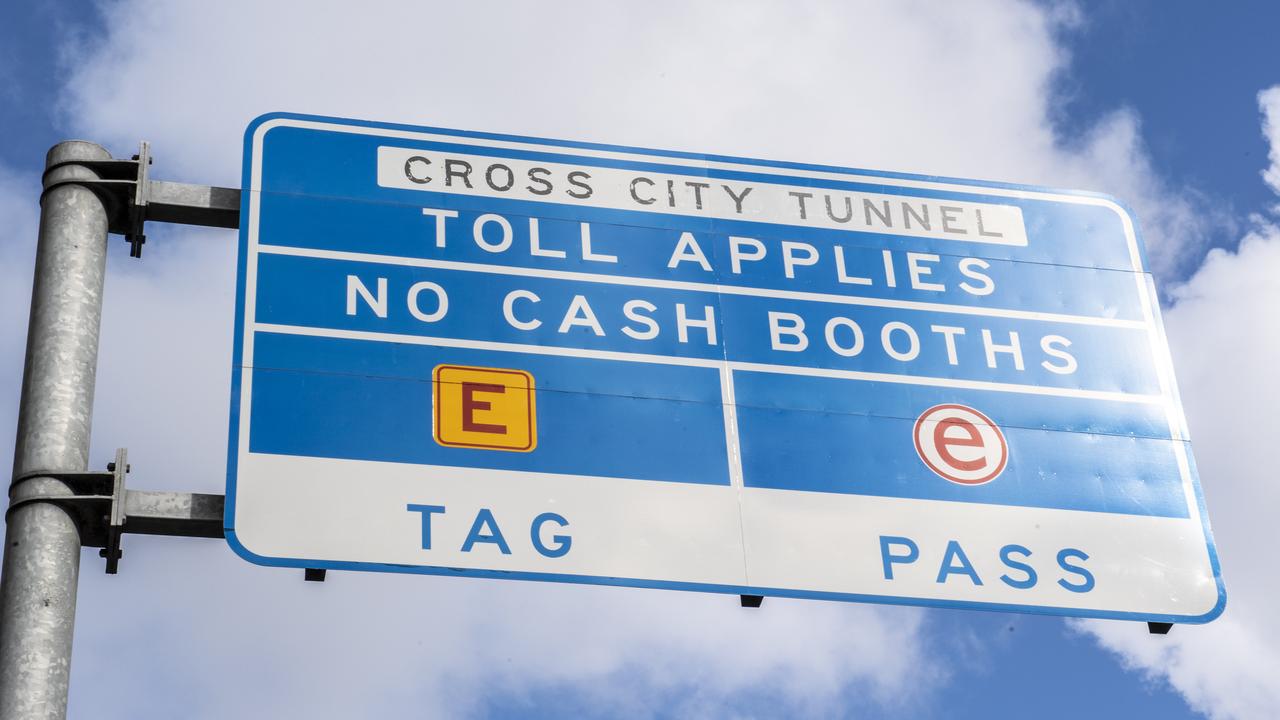Sydney motorists will pay at least $123 billion in road tolls by 2060, according to new modelling released by Labor as it accused the former Coalition government of keeping the true cost of “multi-decade” contracts a “state secret”.
The modelling by NSW Treasury and Transport for NSW released on Monday by the Minns government reveals for the first time what the total toll burden will be over the coming four decades before existing contracts expire, Roads Minister John Graham and Treasurer Daniel Mookhey said in a joint statement.
“I said before we came to government that toll costs should not be kept hidden. As of today, they are no longer a state secret,” Mr Graham said.
“You can’t even get a mobile phone contract without being told the minimum payment and yet NSW motorists have been signed up to more than $100 billion in toll costs without any disclosure under the former Coalition government.
“A 30 year-old driver today will reach retirement age before some existing toll contracts expire, which is why it is critical we let the light shine in here and debate the merits and the long-term costs of how our tolling system is structured.”
Mr Mookhey said, “The people of NSW deserve to know what they have been signed up to under privatised contracts and especially so when we are talking about multi-decade bills for everyone who drives a vehicle in Sydney.
“By providing this Treasury toll modelling publicly we are making good on our transparency agenda just as we are seeking to let people know what is contained in privatised contracts over ports and electricity networks and generators.”
The modelling includes revenue to privatised roads including WestConnex, NorthConnex, Eastern Distributor, M2 and M7, as well as the NSW government-owned Sydney Harbour Bridge and Tunnel, and the future M6 Stage 1.
Treasury has used a conservative set of assumptions, including a long-term inflation rate of 2.5 per cent and projected population growth in NSW, to create the baseline minimum toll burden.
The figures are the total potential tolls paid by motorists and do not reflect the running costs, maintenance and financing charges borne by operators.
It comes after the new government introduced a $60 weekly toll cap, beginning on January 1, which will benefit an estimated 720,000 motorists.
Appearing in budget estimates last week, Mr Graham was accused of being evasive after he repeatedly declined to answer whether all NSW drivers would be able to access the $60 cap.
“What we’ll make clear is how drivers can register and all these arrangements close to the time. We’ve got some time,” he said. “We’re expecting a Service NSW-style engagement … with drivers.”
The Roads Minister said the $561 million program was “on track” for the January 1 rollout.
“We indicated in the election, after some of these issues were raised, that there would be audits, there would be careful administration around the scheme,” he said.
“And I’ll be outlining those to the public in detail prior to the first of January.”
Opposition roads spokeswoman Natalie Ward accused the government of breaking a key election promise.
“Labor blew the budget on this policy, and now they are walking back their promise,” she said. “It is a simple question, will every driver benefit from the scheme or is this another broken promise from Labor?”
Ms Ward has been contacted for comment on the road toll modelling.
An indepedent tolling review led by former ACCC chairman Allan Fels is also tasked with advising the NSW government on making the system fairer, particularly for people in western Sydney who have fewer public transport options and cannot avoid higher weekly toll bills.
Sydney is one of the most highly tolled cities in the world with 13 motorways that incur charges. Motorists pay tolls on more than one million trips per day, totalling around $2.3 billion a year.
Record-breaking quarterly or annual toll increases, now outpacing wages or inflation across nearly all of Sydney, was a key voter issue heading into the March state election which saw Chris Minns elected Premier.
Transurban has been contacted for comment.
The road operator now owns all or part of the M2, the M4, the M5 South West, the M5 East, the M7, the M8, the Lane Cove Tunnel, the Cross City Tunnel, the Eastern Distributor, NorthConnex and WestConnex.
— with NCA NewsWire
